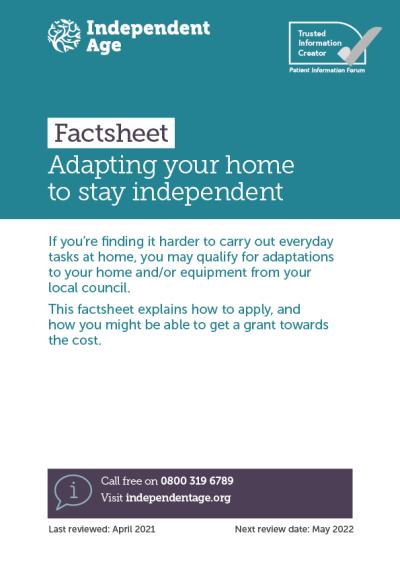Related publications

Moneywise
Choosing where to live

Equity release is a way to release cash from your home without having to move. There are advantages and disadvantages to equity release products. You should consider all your options and get independent financial advice before deciding if it’s the right choice for you.
Housing equity is how much your home is worth if it was sold today (the market value), minus any mortgage or debt. Equity release allows you to use that money by turning it into cash.
There are two types of equity release.
For both types, you can protect some of the value of your home as inheritance for your family. This is known as ring-fencing.
There are usually eligibility criteria and conditions to meet before you can take out an equity release product.
Before releasing equity from your home, it’s important to consider all the implications – not just now, but in the future too.
Equity release puts tax-free money in your hand. You can spend it in any way you’d like – for example, you could use it to:
You can receive the money as a lump sum, a regular payment or a combination of both.
If you don’t want to move or downsize, equity release allows you to stay in your house until you die or permanently move into a care home.
Equity release options aren’t suitable for everyone. Disadvantages to consider include:
Before deciding, it’s best to get advice from an independent financial adviser (IFA) who specialises in equity release. They will consider which equity release product best suits you, or if alternative options would be better. They can also advise you on how it might affect the inheritance you want to leave your family, as well as any benefits you’re getting now or may become entitled to in the future.
You can search for an IFA through the Society of Later Life Advisers or Unbiased.
Equity release products are regulated by the Financial Conduct Authority (FCA). There are rules about what providers must tell you about equity release.
Make sure you take out an equity release product with an authorised provider. They should be a member of the Equity Release Council – you can check on their website for a list of member organisations. They have stricter rules than the basic regulation requirements.
When choosing a provider, remember to ask:
Equity release is one option to release cash. However, there may be other ways to raise money that might work better for you. You could try:
If you’re struggling with debt, there may be other solutions. Visit our webpage Help if you're in debt for more information.
Find more information about equity release on the MoneyHelper website.
Search for an independent financial adviser at the Society of Later Life Advisers or Unbiased.